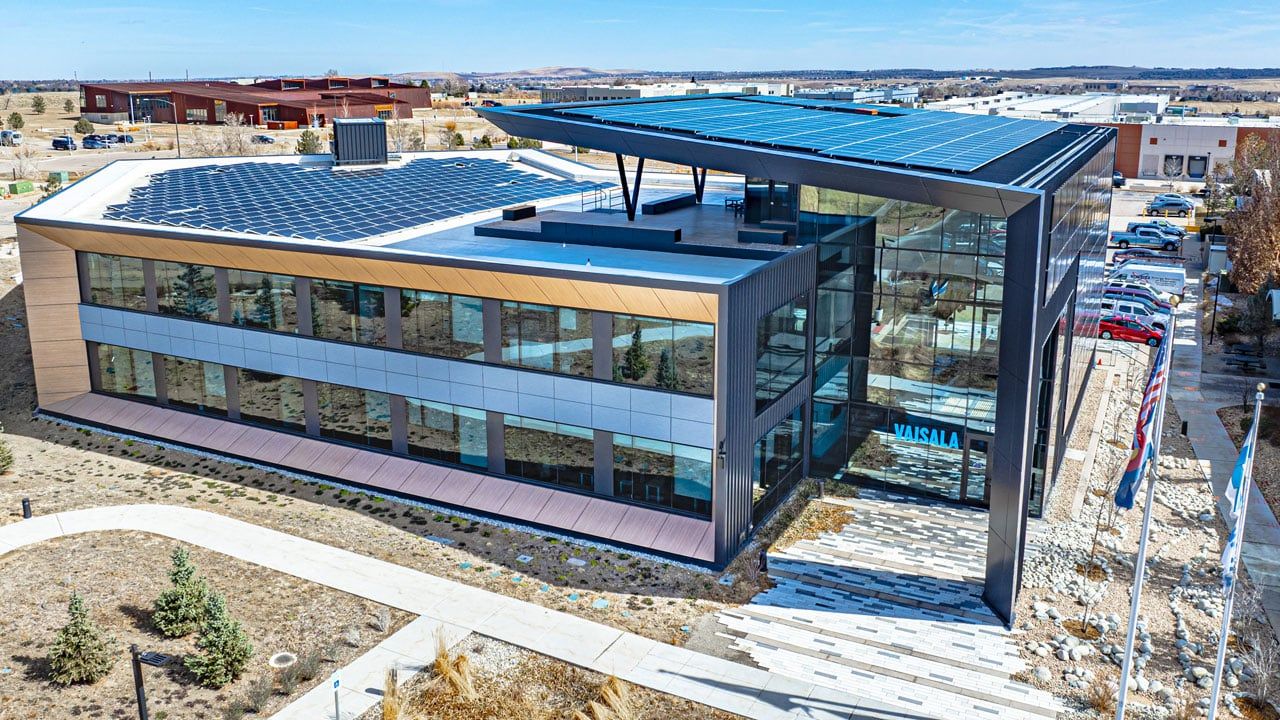DOE awards $2.2 million grant to SWEEP
The grant will be used to help regional businesses and communities reduce energy costs, improve efficiency, and strengthen energy resiliency and reliability through the use of combined heat and power, or CHP.
DOE defines CHP as the concurrent production of electricity or mechanical power and useful thermal energy (heating and/or cooling) from a single source of energy. The single source of energy can either be a fuel or waste heat. Click here to see an infographic and fact sheet about CHP.
SPONSORED CONTENT
Commercial Solar is a big investment, but not an overwhelming one
Solar offers a significant economic benefit for commercial property owners while also positively impacting the environment and offering a path to compliance for new municipal requirements like Energize Denver. A local, experienced solar installer will help you navigate the complexities of commercial solar to achieve financial success for your project.
“These local, onsite systems are clean, efficient and cost-effective,´ said Christine Brinker, director of the U.S. DOE Southwest CHP Technical Assistance Partnership and a senior associate at SWEEP. “The challenge now is to show businesses and communities how this technology could work for them, greatly reducing their energy use and costs and improving reliable energy service. We help provide the information and resources they need to evaluate and move forward with these projects,” she said.
Brinker said the industries and sectors that can benefit from CHP include food processing, paper mills, refineries, chemical plants, primary metals and other large users of energy. She added that it works well for commercial and public-sector buildings-or groups of buildings-such as college campuses, urban developments, military bases, and hospitals.
Under the terms of the four-year grant, SWEEP will run the U.S. DOE Southwest CHP Technical Assistance Partnership, one of seven partnerships established by the DOE to provide national coverage.
The program will provide technical assistance to large energy users and other stakeholders to help them consider CHP in their facilities and to help them through the project development process, from initial CHP screening to installation. It will be available to businesses and communities in Colorado, Arizona, New Mexico, Oklahoma, Texas, Utah, and Wyoming.
The DOE estimates that the U.S. has approximately 82 gigawatts of CHP currently installed, or about 8 percent of U.S. generating capacity. A recent executive order sets a goal of an additional 40 gigawatts nationally.
The grant will be used to help regional businesses and communities reduce energy costs, improve efficiency, and strengthen energy resiliency and reliability through the use of combined heat and power, or CHP.
DOE defines CHP as the concurrent production of electricity or mechanical power and useful thermal energy (heating and/or cooling) from a single source of energy. The single source of energy can either be a fuel or…
THIS ARTICLE IS FOR SUBSCRIBERS ONLY
Continue reading for less than $3 per week!
Get a month of award-winning local business news, trends and insights
Access award-winning content today!

